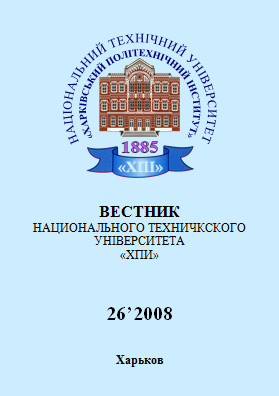Эффект двойного квантования и его особенности
DOI:
https://doi.org/10.20998/%25xAbstract
В работе получены достаточные условия проявления и отсутствия проявления эффекта двойного квантования, возникающего при двукратной JPEG-компрессии цифрового изображения, что может быть использовано для создания практического метода доказательства подлинности цифровой фотографии.References
Гонсалес Р., Вудс Р. Цифровая обработка изображений.- М.: Техносфера, 2005.- 1072 с.
Lucas J., Fridrich J. Estimation of Primary Quantization Matrix in Double Compressed JPEG Images // Proc. Of DFRWS 2003, Cleveland, OH, August 5-8.
Popescu A. C., Farid H. Statistical Tools for Digital Forensics // Information Hiding. - 2004. – P. 128-147.
Popescu A. C., Farid H. Exposing digital forgeries by detecting traces of re-sampling // IEEE Trans. Signal Process. - 2005. – Vol. 53(2). – P. 758-767.
He J., Lin Z. и др. Detecting Doctored JPEG Images Via DCT Coefficient Analysis // ECCV(3) 2006: 423-435.
Кобозева А.А. Связь свойств стеганографического алгоритма и используемой им области контейнера для погружения секретной информации // Искусственный интеллект.- 2007.- №4.- С.531-538.
Деммель Дж. Вычислительная линейная алгебра. – М.: Мир, 2001. - 430 с.
Downloads
How to Cite
Issue
Section
License
Copyright (c) 2017 Bulletin of NTU “Kharkiv Polytechnic Institute”. Series: System Analysis, Control and Information TechnologiesAuthors who publish with this journal agree to the following terms:
- Authors retain copyright and grant the journal right of first publication with the work simultaneously licensed under a Creative Commons Attribution License that allows others to share the work with an acknowledgement of the work's authorship and initial publication in this journal.
- Authors are able to enter into separate, additional contractual arrangements for the non-exclusive distribution of the journal's published version of the work (e.g., post it to an institutional repository or publish it in a book), with an acknowledgement of its initial publication in this journal.
- Authors are permitted and encouraged to post their work online (e.g., in institutional repositories or on their website) prior to and during the submission process, as it can lead to productive exchanges, as well as earlier and greater citation of published work (See The Effect of Open Access).

